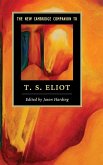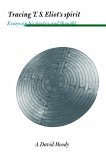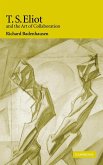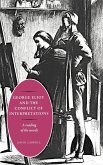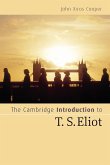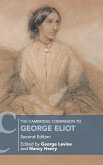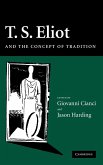A collection of essays on sexuality, desire and feminism in T. S. Eliot's work.
This collection of essays brings together scholars from a wide range of critical approaches to study T. S. Eliot's engagement with desire, homoeroticism and early twentieth-century feminism in his poetry, prose and drama. Ranging from historical and formalist literary criticism to psychological and psychoanalytic theory and cultural studies, Gender, Desire and Sexuality in T. S. Eliot illuminates such topics as the influence of Eliot's mother - a poet and social reformer - on his art; the aesthetic function of physical desire; the dynamic of homosexuality in his poetry and prose; and his identification with passive or 'feminine' desire in his poetry and drama. The book also charts his reception by female critics from the early twentieth century to the present. This book should be essential reading for students of Eliot and Modernism, as well as queer theory and gender studies.
Table of content:
Introduction: Eliot, gender and modernity Cassandra Laity; Part I. Homoeroticisms: 1. The love song of T. S. Eliot: elegiac homoeroticism in the early poetry Colleen Lamos; 2. T. S. Eliot, famous clairvoyante Tim Dean; 3. 'Cells in one body': Nation and Eros in the early criticism of T. S. Eliot Michele Tepper; 3. The masculinity behind the ghosts of modernism in Eliot's Four Quartets Peter Middleton; Part II. Desire: 5. Discarnate desire: T. S. Eliot and the poetics of dissociation Nancy K. Gish; 6. Mimetic desire and the return to origins in The Waste Land Jewel Spears Brooker; 7. Theorizing emotion in Eliot's poetry and poetics Charles Altieri; Part III. Modern Women: 8. Through schoolhouse windows: women, the academy and T. S. Eliot Gail McDonald; 9. T. S. Eliot speaks the body: the privileging of female discouse in Murder in the Cathedral and The Cocktail Party Richard Badenhausen; 10. T. S. Eliot, women and democracy Rachel Potter; 11. Vipers, viragos and spiritual rebels: women in T. S. Eliot's Christian Society plays Elisabeth Däumer.
Hinweis: Dieser Artikel kann nur an eine deutsche Lieferadresse ausgeliefert werden.
This collection of essays brings together scholars from a wide range of critical approaches to study T. S. Eliot's engagement with desire, homoeroticism and early twentieth-century feminism in his poetry, prose and drama. Ranging from historical and formalist literary criticism to psychological and psychoanalytic theory and cultural studies, Gender, Desire and Sexuality in T. S. Eliot illuminates such topics as the influence of Eliot's mother - a poet and social reformer - on his art; the aesthetic function of physical desire; the dynamic of homosexuality in his poetry and prose; and his identification with passive or 'feminine' desire in his poetry and drama. The book also charts his reception by female critics from the early twentieth century to the present. This book should be essential reading for students of Eliot and Modernism, as well as queer theory and gender studies.
Table of content:
Introduction: Eliot, gender and modernity Cassandra Laity; Part I. Homoeroticisms: 1. The love song of T. S. Eliot: elegiac homoeroticism in the early poetry Colleen Lamos; 2. T. S. Eliot, famous clairvoyante Tim Dean; 3. 'Cells in one body': Nation and Eros in the early criticism of T. S. Eliot Michele Tepper; 3. The masculinity behind the ghosts of modernism in Eliot's Four Quartets Peter Middleton; Part II. Desire: 5. Discarnate desire: T. S. Eliot and the poetics of dissociation Nancy K. Gish; 6. Mimetic desire and the return to origins in The Waste Land Jewel Spears Brooker; 7. Theorizing emotion in Eliot's poetry and poetics Charles Altieri; Part III. Modern Women: 8. Through schoolhouse windows: women, the academy and T. S. Eliot Gail McDonald; 9. T. S. Eliot speaks the body: the privileging of female discouse in Murder in the Cathedral and The Cocktail Party Richard Badenhausen; 10. T. S. Eliot, women and democracy Rachel Potter; 11. Vipers, viragos and spiritual rebels: women in T. S. Eliot's Christian Society plays Elisabeth Däumer.
Hinweis: Dieser Artikel kann nur an eine deutsche Lieferadresse ausgeliefert werden.


